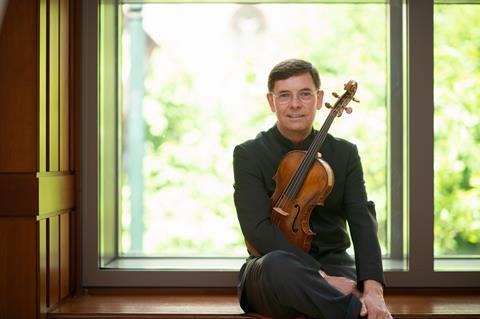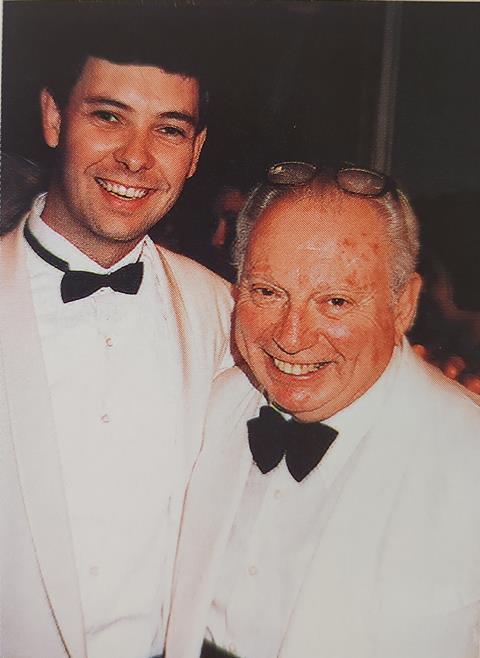The US–Chilean violist and director of the Curtis Institute of Music discusses the importance of technique and curiosity

Discover more Featured Stories like this in The Strad Playing Hub.
Read more premium content for subscribers here
All my teachers, from my father Manuel Díaz to Burton Fine and Joseph de Pasquale, instilled in me the importance of being able to play your instrument at a world-class level technically.
My father, a professional violist and my first teacher, insisted on the European traditions that had been instilled in him. Solving technical issues while learning a piece was not allowed. Technical work would be done separately and always at a slightly more advanced level than the repertoire so that one would never have to make artistic decisions based on technical ability.
I can still remember de Pasquale telling me: ‘If you want to be on stage with great violinists and cellists, you must play at their level.’ This idea has influenced my teaching considerably. In lessons, we always discuss technical issues separately from repertoire.
I was also very lucky that my teachers all had such multifaceted careers. My father had a distinguished orchestral career, played in a professional quartet and was a soloist, while he also had a degree in engineering. Burton Fine worked as a chemist for Nasa before becoming a member of the Boston Symphony Orchestra violin section, and later its principal violist.
Being around people with such a broad set of interests was incredibly valuable to me, as they constantly referenced their ‘other lives’, which informed their musical thinking. And as musicians we are incredibly influenced by other art forms. Music isn’t created in a vacuum, and all the arts are the same language – just in different mediums.
Before going to New England Conservatory, I studied architecture in high school and then completed a programme in industrial design. In hindsight, these were invaluable experiences that I draw on as president of the Curtis Institute of Music, as we continue to expand and improve our campus facilities.

Leadership, whether it’s as principal of an orchestra section or leading an institution, is all about setting the right example – one that is clear and consistent. After all, respect is earned by a reliable work ethic.
Curiosity is at the core of human nature. I would find it impossible to name one great artist, scientist or engineer who didn’t have a healthy sense of curiosity. As such, we often speak to young musicians about the importance of keeping their minds open to opportunities and experiences that may not immediately seem to pay off, or might appear to have very little to do with what they want. I strongly recommend that young players stay open-minded, because you never know.
INTERVIEW BY RITA FERNANDES
Read: Shaping a century of music: Curtis Institute centenary
Read: ‘Your role is to lead by example’ - Edwin Barker’s life lessons
Discover more Featured Stories like this in The Strad Playing Hub.
Read more premium content for subscribers here
The number one source for playing and teaching books, guides, CDs, calendars and back issues of the magazine.
In The Best of Technique you’ll discover the top playing tips of the world’s leading string players and teachers. It’s packed full of exercises for students, plus examples from the standard repertoire to show you how to integrate the technique into your playing.
The Strad’s Masterclass series brings together the finest string players with some of the greatest string works ever written. Always one of our most popular sections, Masterclass has been an invaluable aid to aspiring soloists, chamber musicians and string teachers since the 1990s.
The Canada Council of the Arts’ Musical Instrument Bank is 40 years old in 2025. This year’s calendar celebrates some its treasures, including four instruments by Antonio Stradivari and priceless works by Montagnana, Gagliano, Pressenda and David Tecchler.













































No comments yet